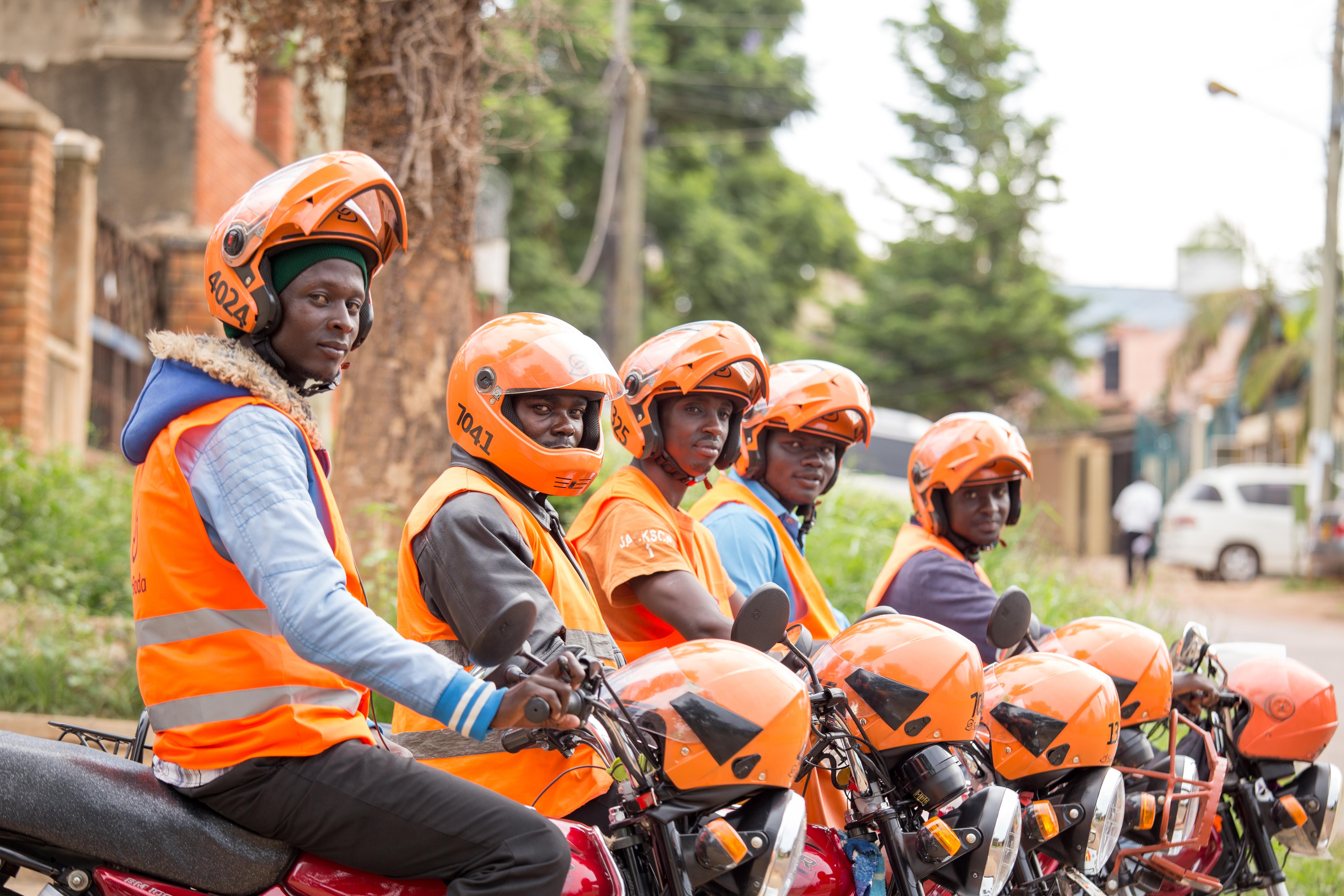Powered by 25,000 motorcycle taxis at the start of 2020, Safeboda was at its peak, ferrying thousands of pillion passengers in cities across Uganda and Nigeria. And then the covid pandemic hit, throwing everything into a spin. Containment measures like work from home directives meant a slump in business, which was worsened by the lockdowns, curfews and bans on public transport, bringing the motorcycle taxi business to an unprecedented lull.
While this pause badly affected SafeBoda, it fueled the startup’s change of strategy from a single service provider to an integrated multi-service and digital payment technology platform.
The startup, which was co-founded in 2017 by Ricky Rapa Thompson, Alastair Sussock and Maxime Dieudonne, recently obtained a payments license from the Central Bank of Uganda, officially marking its debut in the fintech space, and adding to a list of the new services it has introduced over the last two years.
“When we entered the space, we realized that people needed more than rides. People who interacted with the app kept telling us that it could do more. By listening to them, and taking their feedback seriously, and by doing research, we have been able to provide a number of other services besides rides… and that’s going to help the business be more sustainable going forward,” SafeBoda co-founder Thompson told TechCrunch.

SafeBoda co-founders (L-R) Ricky Rapa Thomson, Alastair Sussock, and Maxime Dieudonne. Image Credits: SafeBoda
Using its new SafeBoda wallet, users can send money to each other at no cost (other providers in the market, like telcos, charge transfer fees) – a service that makes it possible for the taxi operators to receive cashless payment too – as card payments remain very low across the continent. Users can also pay partner vendors using the wallet as well as withdraw cash at a fee from the over 200 agents across Kampala. Savings in the SafeBoda wallet also fetch a 10% annual interest.
In a way, the wallet has contributed to the financial inclusion growth within the country as the riders, most of whom are unbanked, can now generate a history of earnings that can be used to assess their creditworthiness for loans. This is also paving the way for the introduction of new services.
“These drivers were actually earning money, but they cannot even have access to loans and other financial services. And we actually know that to drive inclusion, we need to get the right partners to work with, but we also need to have our users’ history. With the help of our platform, we are now able to generate a history of income for the riders and that is a game changer right now.”
Thompson said that the company is lining up new products in the near future – keeping up with its strategy of continuously reevaluating and improving its offering, while extending to customers the much-needed convenience. He said the new products have been built for a global audience as SafeBoda is keen to launch them in new markets.
“We are building a global product that is going to be available in cities across Africa…and SafeBoda will continue to build better services that will allow us to serve the population better and grow beyond Uganda so that anyone in Africa will have access to services just by clicking a button. We will also make sure that the lives of our drivers are improved,” he said.
SafeBoda, which recently became the first to benefit from Google’s $50 million Africa Investment Fund, is looking to tap its user base (over 1 million downloads) to grow its new businesses and keep competitors at bay. It’s other investors include Allianz X, Unbound, Go-Ventures and Gojek, the Indonesian multi-service super app.
In the line-up of businesses SafeBoda has recently is an e-commerce platform, which was launched in April of 2020, with the riders on its log being used to fulfill last-mile delivery. The e-commerce business, which was an addition to the startup’s parcel and food delivery services, ensured that as the need for on-demand ride-hailing service dropped under lockdowns, the riders were kept occupied, effectively ensuring business continuity. It also marked the beginning of the startup’s journey as a super-app.

A curfew on Motorcycle taxi (bodaboda) operators, which has been in effect since 2020, was lifted two weeks ago in Uganda. Image Credits: SafeBoda
By adding more value options for its users, Safeboda is set to remain competitive in an environment that has the presence of well-funded ride hailing operators like Uber and Bolt, as well as e-commerce platforms like Jumia.
Two weeks ago, Uganda’s president Yoweri Museveni lifted the curfew for motorcycle taxi (bodaboda) operators, which has been in effect since 2020, paving the way for the resumption of hailing services by SafeBoda and Uber and Bolt.
“We are the number one ride hailing company in Africa for motorcycle taxis. We have gone through waves of different competition; big guys have entered our market and we still remain the market leader in this space.We will continue to grow and stay very competitive,” said Thompson.
The effects of the Covid pandemic on the mobility industry were not unique to Uganda ‘s transport industry. The world over, transportation services were badly affected by travel restrictions and lockdowns, leading to the collapse of some businesses in the transport industry, among them airlines and taxi companies. But slowly the industry is coming back to life and, overall, the global ride-hailing service industry is expected to more than double over the next seven years to hit $98 billion, with an expected 10% CAGR year-on-year according to this report.
 from eCommerce – TechCrunch https://ift.tt/jswOlu4
from eCommerce – TechCrunch https://ift.tt/jswOlu4 via IFTTT
via IFTTT
No comments:
Post a Comment